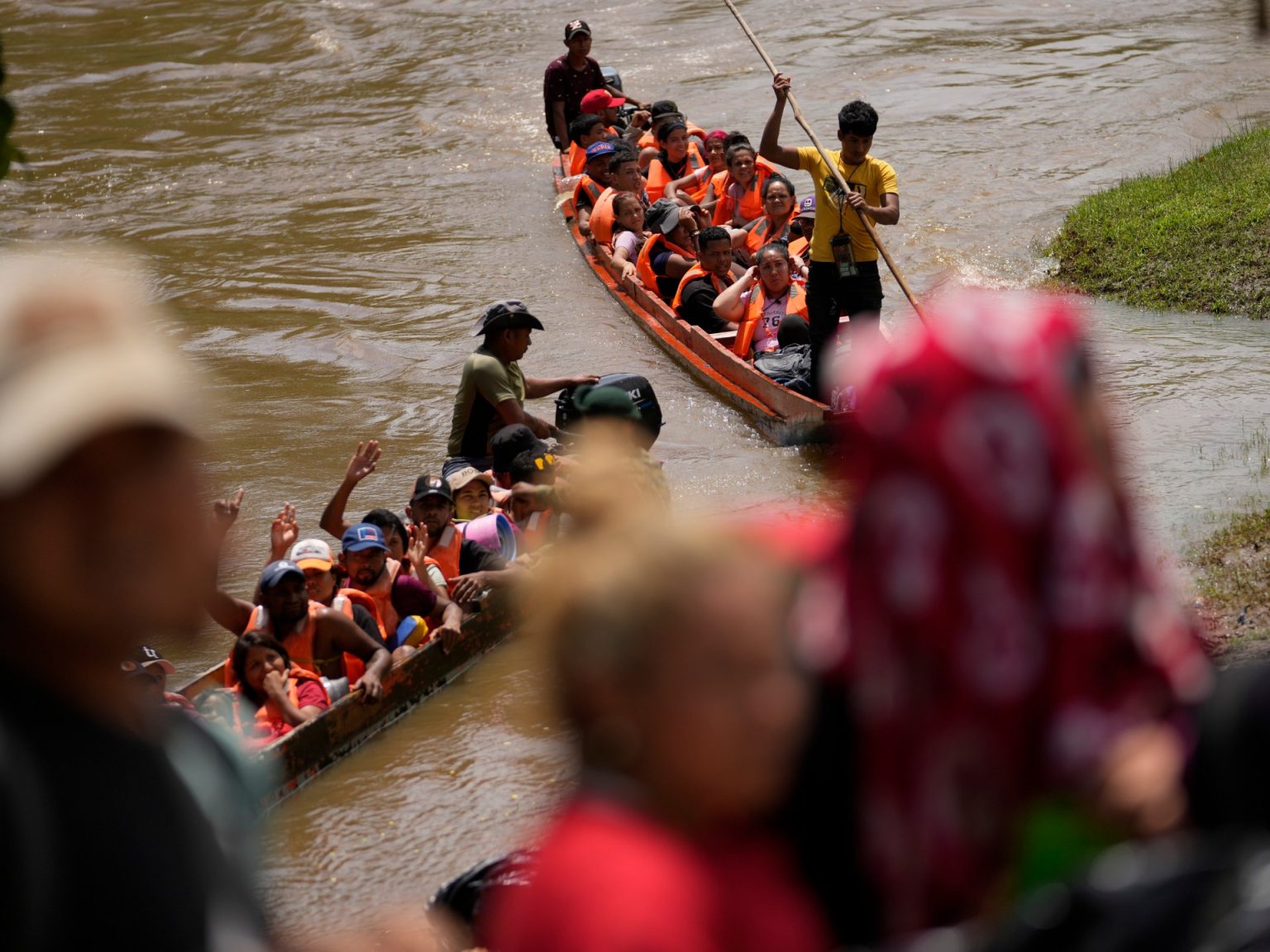Ten individuals of unspecified nationalities drowned in a river near Panama’s border with Colombia, highlighting the dangers migrants and asylum seekers face along this popular migration route during the rainy season. The bodies were found near the remote community of Carreto in the Guna Yala autonomous Indigenous territory, with the Panamanian border police agency, SENAFRONT, not disclosing how the individuals crossed into the country or their specific nationalities. The agency pointed out the risks associated with unauthorized crossings facilitated by transnational organized crime and local collaborators in the area, putting lives at serious risk.
The Darien Gap, the region connecting South and Central America, is notorious for its perilous challenges, including harsh natural elements like insects, snakes, and treacherous terrain. This route features a varied landscape of steep mountains, dense jungles, and strong rivers, with an escalation in risks during the rainy season due to rising river levels. Criminal groups operate in the area, leading to frequent incidents of robberies, extortion, and violence. Despite these hazards, the Darien Gap has become a preferred passage for migrants and asylum seekers escaping violence, economic struggles, and other hardships in their home countries, with many aiming to reach the United States.
In 2023, over 520,000 migrants and asylum seekers crossed the Darien Gap, surpassing the previous year’s figures, according to Panama’s government data. A significant portion of these individuals were from Venezuela, which has witnessed large-scale emigration due to prolonged political and socioeconomic turmoil. Others came from various nations across South America, the Caribbean, Asia, and Africa, seeking refuge and better opportunities. Human Rights Watch raised concerns about the lack of protection for migrants passing through the Darien Gap, highlighting issues such as sexual violence and urging authorities in Colombia and Panama to improve efforts in safeguarding the migrants and local communities.
Panamanian President Jose Raul Mulino recently addressed the influx of migrants entering the country through the Darien Gap, announcing that individuals would only be sent back to their home countries if they consented. Mulino, who assumed office in July, expressed the need to address the growing flow of migrants entering Panama from Colombia and confirmed an agreement with the US government for repatriation flights. Stressing that migration through Panama was a part of a broader issue concerning the United States, he acknowledged the migrants’ desire to reach the US. Mulino emphasized that migrants who choose not to return to their countries will be allowed to continue towards the US, noting the limitations on forcibly repatriating individuals against their will.
The situation at the Panama-Colombia border region continues to pose risks and challenges for migrants and asylum seekers, with efforts needed to address the critical issues faced by those traversing the Darien Gap. Authorities in both countries are called upon to enhance protections for vulnerable individuals and investigate reported abuses, including sexual violence and other forms of mistreatment. The ongoing migration flows underscore the urgency of implementing comprehensive strategies to ensure the safety and well-being of migrants while upholding their rights and dignity throughout their journey. As the global migration crisis persists, collaboration and cooperation among nations are essential in addressing the complex humanitarian issues prevailing in migration routes like the Darien Gap.


